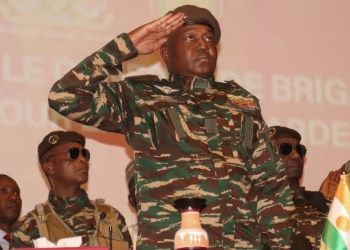In a surprising turn of events, Kenyan politician Raila Odinga lost his bid for the African Union Commission (AUC) Chairperson position, with French President Emmanuel Macron playing a key role in shifting the electoral dynamics.
Macron reportedly mobilized Francophone African nations to vote for Djibouti’s candidate, Ali Youssouf, emphasizing France’s strategic interests in Djibouti, home to a major French military base. Arab states also joined the effort, lobbying Muslim-majority nations and offering development incentives to sway votes.
Despite entering the race with support from 33 nations, Raila ultimately secured only 22 votes, losing in the seventh round of voting. The outcome has reshaped Kenya’s geopolitical standing and raised concerns about its future influence in the African Union.
Political Fallout in Kenya
Raila’s defeat has rippled through Kenya’s political landscape, impacting both President William Ruto and the opposition. Ruto had heavily backed Raila’s campaign, hoping a victory would boost his 2027 re-election strategy. His team was reportedly stunned by the loss, with Prime Cabinet Secretary Musalia Mudavadi even preventing Raila from taking media questions.
Political analysts suggest that Raila’s return could reignite opposition politics, possibly making Ruto a one-term president. The ODM party, sensing an opportunity, is urging Raila to reassert leadership and refocus on local politics.
Ethnic and Regional Reactions
The election loss has further deepened ethnic divisions, with Mt. Kenya residents celebrating Raila’s defeat, despite former Deputy President Rigathi Gachagua’s public endorsement of his candidacy. Meanwhile, Raila’s traditional strongholds in Kisumu and Homa Bay have reacted with frustration, with chants of “Ruto must go” erupting in some areas.
ODM insiders expect Raila to call a party meeting soon to solidify his political base, while some allies argue that formalizing cooperation with Ruto could be a strategic move.
Despite the setback, Raila remains a formidable force, and his return to active politics is likely to shape Kenya’s path toward 2027.















